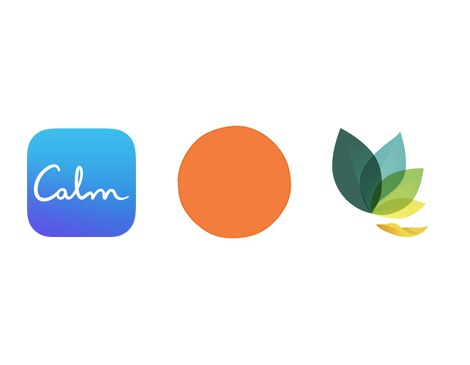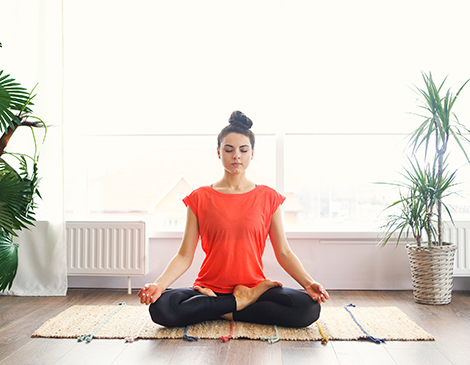Global Pandemics, economic woes, job loss and all the uncertainty that follows can kick our stress and anxiety into high gear. Dr. Joseph Calabrese, director of the Mood Disorders Program at University Hospitals, explains the effects of this anxiety and how we can cope when our world seems like it’s spinning out of control.
Q: How do our bodies react to coronavirus-related anxiety?
A: When people see others dying and cannot easily connect with friends and family, they turn inwards. They stuff it inside. You’re seeing people get dull, flat and feeling especially helpless. If the anxiety is mild and not biologically based, it will come and go. In this particular situation, that’s an appropriate response.
Q: Does the uncontrollable nature of this outbreak and what may follow it make our anxiety worse?
A: Yes. People [are] stuck at home and feeling helpless. That’s a pretty bad scenario because they realize that they aren’t in the driver’s seat. To deal with that, they need to rely on family, friends and other support systems.
Q: How can our minds recover from the anxiety caused by social distancing and the pandemic itself?
A: We need to separate the illness of anxiety from the anxiety of situations like this. If your anxiety is contingent on transient stress, you should be able to move past it. In some instances, the symptoms might signal a serious illness, like generalized anxiety disorder, that will continue in the future.
Break Room
Even when the pandemic peaks and slows down, that doesn’t mean we’ll come out on the other side stress- and anxiety-free. Weeks spent social distancing put everyone on edge, and the economic impact could be felt for months or longer. Dr. Terry Stancin, chief of psychology at the MetroHealth System, shares three ways to manage in-the-moment anxiety during this tumultuous time.
Take a breath
Try this “square breathing” technique: Breathe in through your nose and out through your mouth to a slow count of either five or 10. “Do that a few times while sitting in a quiet spot,” says Stancin. “Remind yourself that most people are going to be OK. Think about a likely scenario, not the worst-case one.”
Stick to a schedule
Working from home (or just being stuck at home during social distancing) is no excuse to spend all day wallowing in your pajamas. “Lots of lives have been disrupted, so make sure that you have a list of things to do each day,” says Stancin, noting that people should eat well, go for a walk outside or setup virtual hangouts with people you normally see every day. “That keeps your mind working and, more importantly, off all the bad news.”
Consult the pros
Sometimes, reaching out for professional help is the smartest move. Especially if you’ve grown so distressed that day-to-day functions have become a challenge. “Feeling anxiety is perfectly understandable and normal in the face of all this,” says Stancin. “But if you find yourself snapping at your kids or unable to concentrate on your work due to your anxiety, that’s a really good indication to get professional support.”

Smart Solutions
Our phones keep us connected to the world. But with always-on news alerts and the sometimes-toxic realm of social media, they can seem like a ready-made tool for stress creation. Download one of these anxiety-busting apps and turn your digital sidekick into a peaceful oasis.
Calm ($69.99 per year)
If anxiety-induced insomnia is keeping you up at night, Calm’s Sleep Stories (voiced by Matthew McConaughey and others) will usher you off to slumberland. Check out the free meditations too.
Headspace ($69.99 per year)
This popular mindfulness app delivers mini-meditation exercises throughout the day. To combat the anxiety of the current pandemic, Headspace’s “Weathering the Storm” collection offers a free selection of meditations, sleep and movement exercises.
Oak (free)
This meditation and breathing app — complete with zenlike watercolor graphics — brings a minimalist approach to relaxation. The animated instructions make its breathing exercises a breeze, and you can set up daily inspirational quotes to ping you when you might need it most.
A Call Away
If you’re feeling overwhelmed and your normal anxiety-reducing exercises aren’t working for you, reach out to one of these help lines.
Cuyahoga County Coronavirus Help Line: 855-711-3035
Keep anxiety in check by arming yourself with trustworthy information. Operated by the Cuyahoga County Board of Health, this line fields general inquiries.
Cuyahoga County Peer Support Warmline: 440-886-5950
Peer support workers provide a friendly ear to all local adults, offer emotional support and share their own experiences dealing with mental health issues.
Ohio Crisis Text Line: Text “4HOPE” to 741741
If the thought of a phone call makes your nerves stand on end, quickly connect with one of these trained crisis counselors via text. This free, 24/7 service promises complete confidentiality.




